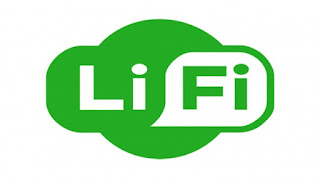TAG | philips li-fi
| In France’s Carrefour supermarket, visible light communication is used to transmit information to visitor’s smartphones. |
The development is the latest leap forward in the up-hill gallop that is the progression of Li-Fi, and is a move that will no-doubt raise the profile of the new technology, by rolling it out onto a bigger stage.
The first live demonstration of Li-Fi in front of an audience was given just a few weeks ago at LuxLive in London.
Recently though, the technology’s forward momentum seems to have slowed down a little, with limited pilot implementations and demos from vendors such as Scotland’s pureLi-Fi and others, being the only evidence of implementation of the technology in the field.
The news from Philips is likely to reverse this trend and the company looks set to invest in the technology in a push toward commercialising it.
The lighting giant is planning to leap into the new and, potentially, lucrative Li-Fi market, by purchasing Luciom, a small French company, which specialises in visible light communication (VLC).
‘Philips Lighting acquired Luciom at the end of 2016,’ a Philips spokesperson confirmed to Lux’s sister publication, LEDs Magazine, noting that all eight of Luciom’s employees now work for Philips.
Luciom is developing several technologies related to VLC, including Li-Fi. Philips appears to be particularly interested in Luciom’s potential to improve Li-Fi in several ways, including speed, coding, decoding and reliability.
Once Li-Fi spreads as a technology, it is hoped that it can become another means of wireless internet transmission, assisting and complementing Wi-Fi, by opening much more frequency to internet use.
Wi-Fi with its radio frequencies is more limited than the considerably wider spectrum of LED lightwaves on which Li-Fi data rides.
Luciom is best known for a ‘tagging’ scheme, which individual LED lights use to uniquely identify themselves in one-way indoor-positioning systems. Compared to two-way Li-Fi, indoor-positioning is a more basic form of VLC that sends small amounts of information from a light to a phone or other gadget.
A number of retailers are experimenting with one-way VLC to try to engage shoppers in stores with information and direct them to promotions. Philips has had a trial with a Carrefour store in France and with the Dubai-based retail chain aswaaq. In the US, Target is trialing the technology, although it has never revealed its supplier, as Lux Review reported last year.
Philips is believed to have acquired Luciom for less than €10 million. LEDs Magazine understands that at one point Philips might have raised patent infringement queries related to Luciom, which could have factored into the price of the purchase.
‘The terms of the acquisition were not disclosed,’ the Philips spokesperson said via email, in response to questions about any patent implications.
bidirection li-fi · lifi · lifi led · light control · luciom · Novel Energy Lighting · philips li-fi · smart buildings · visible light communication · wifi lighting


